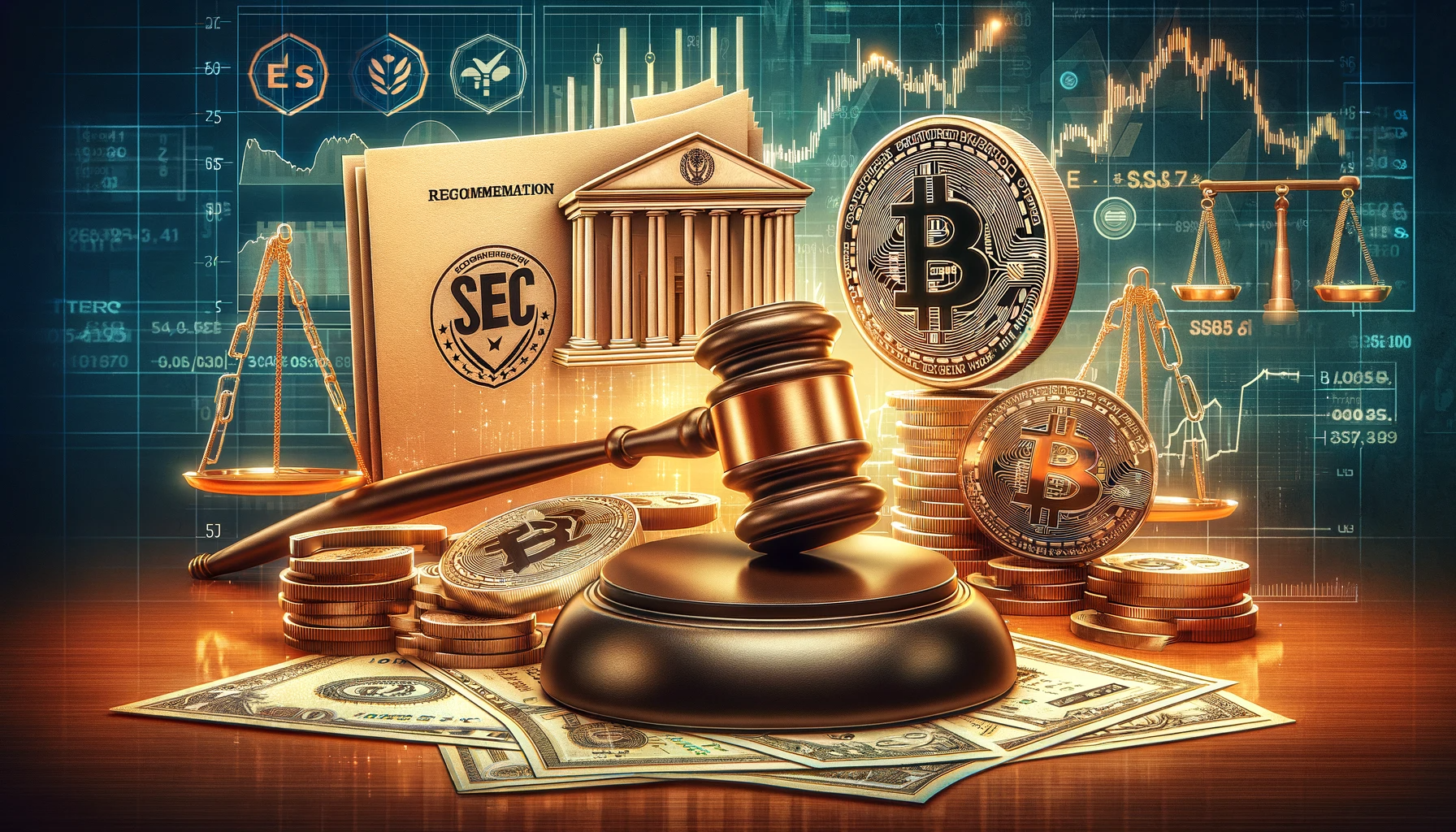Blockchain
South Korean Crypto Exchange Executives Jailed for Bribes and Altcoin Price Manipulation

In a significant development within the cryptocurrency world, a former senior executive of the South Korean crypto trading platform Coinone has been sentenced to prison for accepting bribes in exchange for listing altcoins. The case sheds light on the challenges of ensuring transparency and ethical conduct within the crypto industry.
The Verdict
The Seoul Southern District Court recently handed down a verdict in the case, sentencing a former Coinone executive, referred to only as Jeon (aged 41), to four years in prison. Additionally, another individual named Kim (aged 31), who served as the manager of Coinone’s listing team, received a three-year jail term.
Two other individuals involved in the case were given prison sentences as well, with one sentenced to 2 years and 6 months and the other to 1 year and 6 months. All four individuals faced charges related to breach of trust and bribery offenses.
Bribery for Listing Altcoins
The core issue in this case revolved around the acceptance of bribes in exchange for listing certain altcoins on Coinone’s platform. According to reports, Jeon, as the former general director of coin listings at Coinone, was instrumental in listing these altcoins with the alleged intent of driving up their prices.
Kim’s Defense
During the trial, Kim, the manager of Coinone’s listing team, claimed that he had no intention of conspiring with Jeon and was unaware that his actions would lead to price manipulation. However, the judge presiding over the case ruled that it was reasonable to assume that Kim was fully aware that listing these coins would result in market manipulation and increased trading volumes.
Evidence of Wrongdoing
The prosecutors presented evidence showing that both Jeon and Kim had received crypto assets and cash payments from brokers between 2020 and 2022. Furthermore, Kim was accused of attempting to destroy evidence multiple times after the investigations began.
Regulatory Implications
The judge’s verdict also highlighted the need for regulatory bodies to implement more robust monitoring and management processes for crypto exchanges’ listing procedures. This case underscores the challenges faced by regulatory authorities in ensuring a fair and transparent cryptocurrency ecosystem.
Broader Industry Concerns
This case is not an isolated incident. It comes amid a broader crackdown by South Korean authorities on cryptocurrency-related misconduct, particularly cases involving price manipulation. Executives from other major crypto exchanges, including Bithumb, have also faced accusations of attempting to manipulate coin prices.
Busan’s Digital Assets Platform
Interestingly, earlier in the month, South Korea’s second-largest city, Busan, announced plans to launch a digital assets trading platform. While the original plan was to list cryptocurrencies, the project has been scaled back to focus on trading digitized commodities and tokenized intellectual property rights.
Conclusion
The sentencing of a former Coinone executive for accepting bribes to list altcoins sends a strong message about the need for transparency and integrity within the cryptocurrency industry. It also highlights the challenges that regulatory bodies face in overseeing this rapidly evolving sector. As the crypto market continues to grow, maintaining trust and ethical conduct will be paramount to its long-term success.
Also Read: Major Hack Hits Huobi Global: $7.9 Million Stolen in HTX Crypto Exchange Breach
Blockchain
US GAO Issues Key Recommendations to SEC Prior to Historic Spot Bitcoin ETF Approval
Blockchain
Bitcoin ETFs Witness Surge in Trading Activity as SEC Approves 11 Products

In a significant development for the cryptocurrency industry, the U.S. Securities and Exchange Commission (SEC) recently approved 11 spot Bitcoin exchange-traded funds (ETFs). This approval comes after a decade-long struggle between regulators and the digital asset industry, marking a watershed moment for the acceptance of digital assets as mainstream investments. Among the approved ETFs are BlackRock’s iShares Bitcoin Trust, Grayscale Bitcoin Trust, and ARK 21Shares Bitcoin ETF.
Unprecedented Inflows:
On the first day of trading, these ETFs saw impressive activity, with $4.6 billion worth of shares changing hands across all the products, according to LSEG data. Bitwise, a crypto asset manager, reported that its spot Bitcoin ETF alone attracted $240 million, making it the most popular among the newly introduced products. Grayscale, BlackRock, and Fidelity dominated total trading activity, according to the LSEG data.
Also Read: Grayscale Court Decision Crucial in SEC’s Approval of Bitcoin ETFs, Says Chairman Gary Gensler
Bitwise’s Chief Investment Officer, Matt Hougan, expressed optimism about the future, stating, “We think that this will become a market measured in the tens of billions of dollars.” This surge in interest highlights a growing acceptance of Bitcoin and other cryptocurrencies among traditional investors.
Competition and Fee Wars:
The SEC’s approval has sparked intense competition among issuers to gain market share. Franklin Templeton, reacting swiftly, slashed the fee for its Bitcoin ETF to 0.19 percent, the lowest in the market. Additionally, the company waived fees entirely on the product’s first $10 billion in assets under management until August. Valkyrie, another player in the space, reduced its fees to 0.25 percent after its ETF started trading. This fee war is indicative of the fierce competition among ETF issuers to attract investor capital.
Grayscale’s Transition to ETF:
Grayscale, a prominent player in the cryptocurrency investment space, received approval to convert its existing Bitcoin trust into an ETF. This move instantly made it the world’s largest Bitcoin ETF, managing over $28.6 billion in assets. Despite this success, the ETF experienced outflows of $95 million on the first day of trading. The ability of Grayscale to navigate this transition will be closely watched, as it sets a precedent for other trusts considering a similar shift.
Regulatory Caution:
While the SEC’s approval is a significant step forward, it is important to note that SEC Chair Gary Gensler emphasized that the decision should not be interpreted as an endorsement of Bitcoin. Gensler referred to Bitcoin as a “speculative, volatile asset,” highlighting ongoing concerns about investor protection. The regulatory nod indicates a willingness to explore the potential of digital assets, but caution is warranted as the market continues to evolve.
Conclusion:
The approval of 11 spot Bitcoin ETFs by the SEC marks a turning point for the cryptocurrency industry. The influx of billions of dollars within the first day of trading demonstrates a growing acceptance of digital assets among traditional investors. The fee wars among ETF issuers and Grayscale’s transition into an ETF further highlight the competitive dynamics and challenges in the market. As the cryptocurrency market matures, ongoing regulatory scrutiny and investor sentiment will play crucial roles in shaping the future of these innovative financial products.
Blockchain
Tether CEO Advocates for Real-World Use Cases in Crypto Without Blockchain or Tokens

In a recent exclusive interview with Cointelegraph, Tether CEO Paolo Ardoino has voiced his belief that the future of the crypto industry lies in providing real-world use cases without necessarily relying on tokens or blockchain technology. Ardoino argues that the next breakthrough in the industry should focus on the fundamental value proposition offered by cryptography, emphasizing peer-to-peer transactions and privacy protections.
“Crypto doesn’t need a blockchain. It doesn’t need a token,” Ardoino stated, challenging the conventional reliance on these technologies. He proposes that the industry should shift its focus towards practical applications that offer tangible benefits to users.
Ardoino suggests that potential killer apps in the crypto space could take the form of everyday solutions, such as a booking system or a competitor to ride-sharing services like Uber. The key, according to him, is to leverage the core strengths of cryptography in facilitating secure and private peer-to-peer transactions.
One of the primary concerns raised by Ardoino is the centralization and regulatory scrutiny associated with token issuance. He argues that introducing a token creates a centralized point of failure, increasing the likelihood of regulatory challenges. Ardoino notes that many projects that issued tokens are currently under the scrutiny of regulatory bodies like the U.S. Securities and Exchange Commission (SEC).
“To be decentralized, this system wouldn’t need blockchain technology, which is slow and requires a global shared state,” Ardoino explained. He cited BitTorrent as an example of a decentralized system that achieved success without relying on blockchain technology.
The Tether CEO contends that departing from the conventional blockchain and token model could lead to more innovation and adoption in the crypto industry. By focusing on the core principles of cryptography, projects can potentially avoid regulatory challenges and offer solutions that resonate with a broader audience.
Also read:Bitcoin-Centric Firms Surge in Pre-market as BTC Soars Past $45K
As the crypto industry continues to evolve, Ardoino’s perspective challenges the status quo, encouraging a shift towards real-world applications that prioritize user experience and practicality over traditional blockchain and token-centric approaches.




















